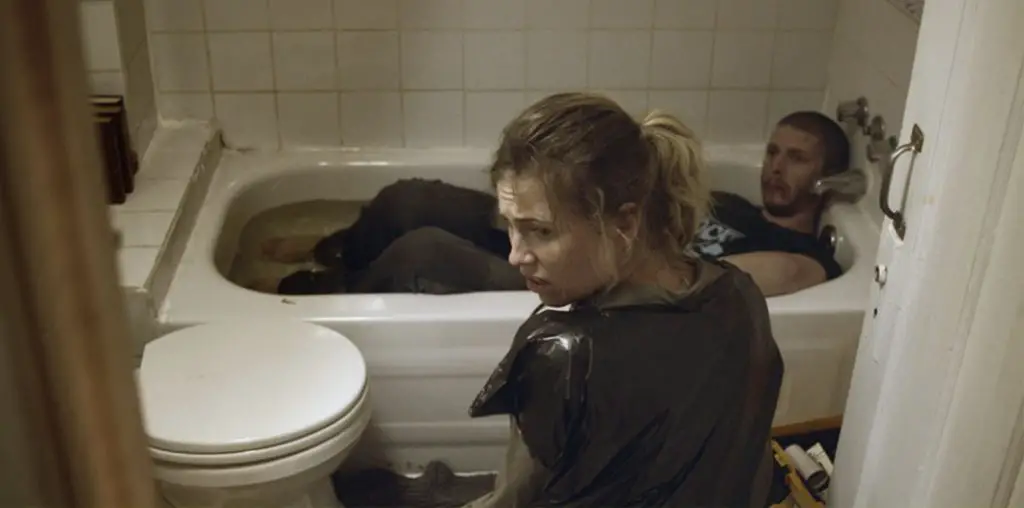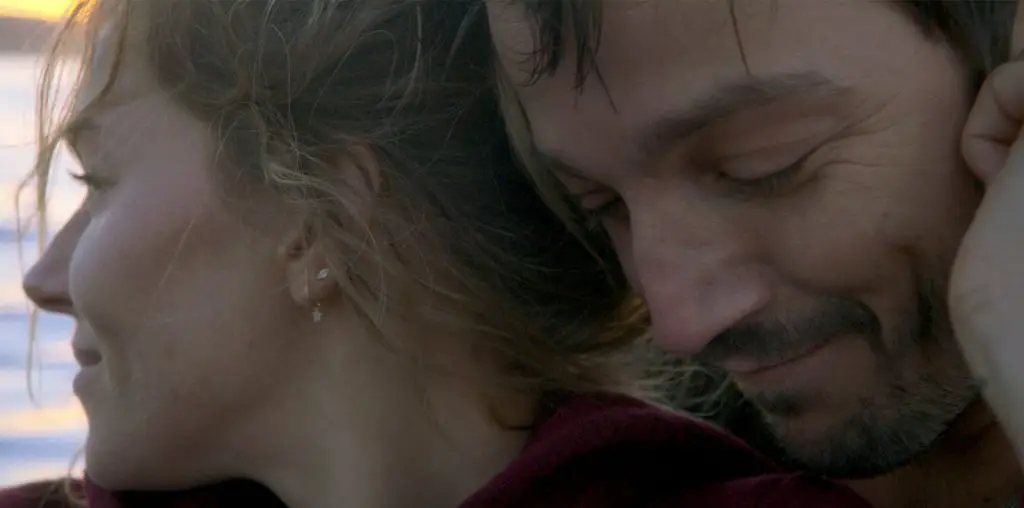
With his round face, broad smile and convivial manner, Father Dennis Gray easily won the confidence of his young students. Teaching at a Catholic school in Toledo in the 1980s, he befriended a group of teenage boys who happily accepted his invitations for playful weekends at the priest’s lakehouse. But play was not the only thing the boys experienced in the company of the good Father Gray.
“Twist of Faith,” a potent and meditative new documentary, explores the impact of Gray’s improprieties by following several months in the life of one of his victims. By putting a single, very recognizably human face onto the scandal that has ravaged the Catholic community, “Twist of Faith” personalizes the overwhelming statistics and unthinkable violations. This isn’t a story about how thousands of youths were betrayed by the institution that was supposed to protect them; this is a bruising chronicle of how one life was damaged nearly to the point of ruin.
Director Kirby Dick employs a useful device, lately in vogue because of reality TV — the first-person video diary. He gave cameras to his subjects so they could speak their minds in moments of quiet and vulnerability, then wove those private words in with news footage and conventional reportage.
The picture introduces us to Tony Comes, a Toledo fireman who superficially exudes confident virility. He’s a plain-spoken father of two in his 30s, but he carries the burden of Gray’s abuse through every part of his life and his marriage. In a particularly wrenching passage, he and his wife, Wendy, explain how each fights back visions of Gray during sex. And in the movie’s most excruciating scene, Tony struggles through tears while explaining his abuse to his 8-year-old daughter.
As the documentary unfolds, Tony becomes emboldened to seek justice when the first major wave of sex-abuse lawsuits against priests hits the news. He not only files a lawsuit against Gray and the Toledo diocese, but he signs his name to the suit and submits to media interviews about the case.
While this bold move helps Tony renew bonds with childhood friends who also suffered abuse, it rends his family. Wendy converted to Catholicism before they married, and she becomes torn between standing by her husband and adhering to the faith that plays a crucial role in her life. Watching Tony and Wendy wrestle with the ways in which their marital identity is entwined with Catholicism is punishing.
Even tougher is witnessing a tearful confrontation between Tony and his mother, who is even more steadfast in her devotion to the church than Wendy. When Tony tells his mother that the money she puts into the collection plate every Sunday helps pay the attorneys who are fighting his lawsuit, it’s a shattering exchange made all the more intense by her cavalier dismissal of his pain.
Dick finds a potent way of making Gray a presence in the movie, because he splices pieces of the priest’s videotaped deposition into various parts of the picture. It’s eerie to watch the stone-faced man casually answer innocuous questions — and then awkwardly deflect difficult ones on the advice of his offscreen counsel. Just watching his non-reactions as the interviewer describes the acts of which he’s accused is unnerving and strangely illuminating. In fact, one of the deposition segments offers a window into the psyche of a real-life monster: “I don’t think I ever believed in hell,” Gray says.
“Twist of Faith” is aptly named, because the most powerful thread in the story is Tony’s conflicted relationship with the church. Even with his suffering perpetually close to the surface, he raises his children Catholic, and struggles to differentiate his feelings toward Gray from his loyalty to the church. Yet when the diocese lies to him in order to protect Gray and itself, he’s shaken to the point of nearly throwing away one of the things that got him through his ordeal.
Dick doesn’t even try to offer impartiality; his film is an all-out attack on the church that employs such rules as “mental reservation,” an obscure loophole in the Catholic canon that authorizes priests to lie if doing so protects the church.
What’s most memorable about “Twist of Faith” is that Tony never arrives at the same unconditional stance. He doesn’t have that luxury. Catholicism has such a powerful hold over his family that he might well find himself abandoned if he walked away from the institution that wronged him. This is a troubling and unresolvable quandary, and certainly one Tony isn’t alone in facing.

